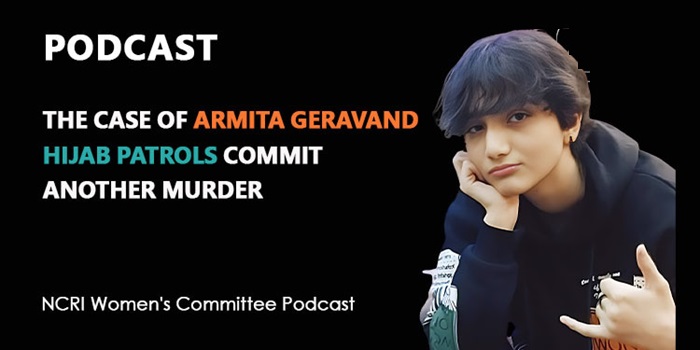
Armita Geravand, born on April 2, 2006, was a beacon of youthful energy and talent, known for her exceptional skills in Taekwondo and painting.
However, her promising life met a tragic end in October, highlighting the oppressive realities under the Iranian regime, particularly the enforced hijab mandate for women and girls.
On October 1, Armita, a third-degree black belt and an aspiring painter, was heading to school with friends, their hair uncovered, defying the regime’s compulsory veil. Aboard a metro train, a horrific incident ensued, resulting in Armita bleeding from the head. She slipped into a coma, and after 28 days, the regime declared her brain dead.
The official narrative claims Armita fainted due to low blood pressure caused by skipping breakfast, leading to her hitting her head on a sharp object inside the train. However, this account is dubious, as it is unlikely her friends couldn’t have prevented such a fall. Some doctors also dispute that a mere drop in blood pressure could cause such severe trauma.
🇮🇷👁 | Desperate anti-revolutionary effort to create a new story
🔸 The anti-revolutionary media continued to struggle to create unrest in the country, this time they tried to take advantage of the pressure drop of a 16-year-old teenage girl in the Tehran subway! pic.twitter.com/oLrTyWrj9T
— 🇮🇷 Rydro | عباس 🕋⚔ (@Rydro313) October 3, 2023
The secrecy surrounding Armita’s case raises further questions. The intelligence services tightly controlled access to Armita and her family in the hospital, even detaining a journalist attempting to report on the case. This secrecy fueled public skepticism about the official story.
Eyewitness accounts, reported by The Guardian, suggest a confrontation between a Hijab patrol and Armita on the train, leading to her fatal injury. These accounts, coupled with the excessive security measures and the arrest of Armita’s mother for trying to see her, point to a more sinister scenario than the regime admits.
Armita’s story is seen as another cover-up by the regime, similar to the case of Mahsa Amini. The authorities isolated Armita in the hospital, controlled the narrative through coerced interviews with her family and friends, and selectively released CCTV footage, omitting crucial moments of the incident.
1) #Canada—October 7, 2023: Freedom-loving Iranians and #MEK supporters held a rally in support of the #IranRevolution in #Vancouver.
They also condemned the brutal attacks against women, beating and poisoning school girls by the mullahs' regime. #IranRegimeChange… pic.twitter.com/GX1B0lOp8y— Iran Freedom (@4FreedominIran) October 8, 2023
Amnesty International expressed “serious concerns” over the forced propagation of the state narrative. The conflicting reports about Armita’s condition and the timing of the announcement of her death suggest a deliberate strategy by the regime to minimize international attention and possible backlash.
Armita Geravand’s tragic death is a stark reminder of the oppressive conditions under the Iranian regime, especially for women challenging the enforced hijab mandate. Her story, shrouded in mystery and manipulation, reflects the broader struggle for freedom and rights in Iran.

MEK Iran (follow us on Twitter and Facebook), Maryam Rajavi’s on her site, Twitter & Facebook, NCRI (Twitter & Facebook), and People’s Mojahedin Organization of Iran – MEK IRAN – YouTu
